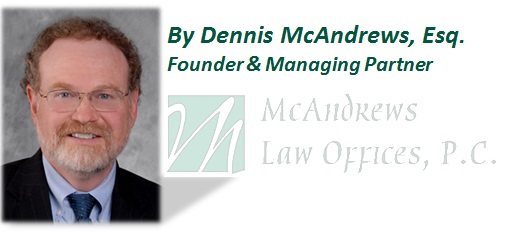Why do so many public and private schools use outside investigations?
News reports from across the country frequently report that school districts, public universities, private secondary schools, and private colleges have retained an outside investigator to examine claims of misconduct by administrators or staff. Several reasons exist for these institutions to so extensively use the services of outside investigators such as McAndrews Law Offices, many of which are unique to the school environment.
First, schools tend to be very tight-knit organizations and are highly collaborative, with administration and staff having many opportunities to interact with one another both in and out of the school environment. Staff meetings, in-service training, extracurricular activities, field trips, sporting events, and various social events create tight bonds among administration and staff. These relationships frequently prevent an impartial and objective examination of allegations of impropriety of any type. Consequently, when a member of the school staff is accused of financial, personal, or other misconduct, it is often impossible to expect supervisors who work closely with them to properly investigate such allegations.
Second, because educational institutions must answer to the public as well as trustees, students, and other major stakeholders, a thorough and complete examination of any claim of misconduct is essential. The public demands nothing less, thus creating high expectations of thorough professionalism in evaluating allegations of impropriety. The temptation for administrators to ignore assertions of improper activities by professional staff is both real and substantial, even though it is now well-established that a cover-up can be even more problematic for the institution than the initial offense itself. Only after a proper and transparent outside investigation is completed will a favorable public perception of the educational program be maintained.
Finally, educational institutions inevitably base much of their financial and pedagogical systems upon the integrity of their adult staff, and therefore opportunities for a wide variety of misconduct are particularly available in schools. Because schools educate young persons who are in the prime formative stages of their lives, these young people are particularly vulnerable to misconduct by trusted adults. Consequently, the very nature of the school environment presents a great many situations where misconduct can arise, and these situations almost inevitably call for the skill, impartiality, and objectivity of an outside investigator to properly evaluate these matters and make appropriate recommendations to the responsible administration.
by Dennis McAndrews, Esq.
Founder and Managing Partner

